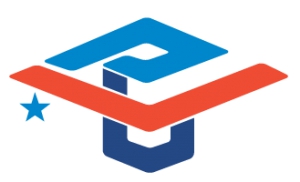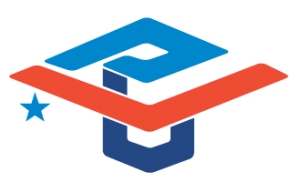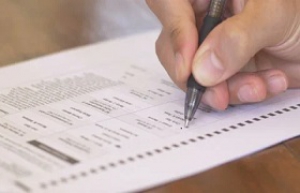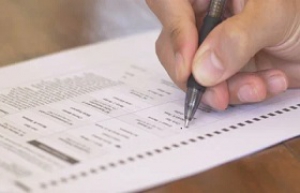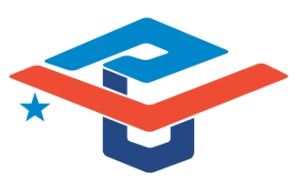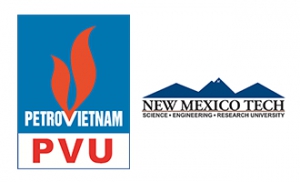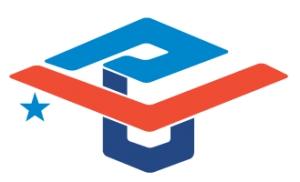Super User
THÔNG BÁO XÉT TUYỂN BỔ SUNG
ĐẠI HỌC HỆ LIÊN KẾT NĂM 2020
Trường Đại học Dầu khí Việt Nam xét tuyển bổ sung đại học hệ liên kết năm 2020, cụ thể như sau:
1. Phương thức và chỉ tiêu xét tuyển bổ sung năm 2020:
1.1. Phương thức xét tuyển:
- Xét tuyển dựa trên kết quả học tập THPT: Điểm trung bình học tối thiểu của 3 năm THPT là 6.5/10 (Xem xét cả Toán, Vật lý, Hóa học và Tiếng Anh)
- Xét tuyển dựa trên kết quả thi tốt nghiệp THPT:
| Stt | Ngành học (dự kiến) | Tổ hợp xét tuyển | Điểm nhận hồ sơ (theo điểm thi THPT) |
| 1 | Kỹ thuật Hóa học | A00, D07 |
19.50 (điểm áp dụng cho thí sinh THPT khu vực 3, không ưu tiên) |
| 2 | Kỹ thuật Dầu khí | A00, A01 | |
| 3 | Khoa học trái đất/Địa chất Dầu khí | A00, A01 |
1.2. Chỉ tiêu: 20 (cho cả 2 phương thức)
2. Thời gian đăng ký xét tuyển (ĐKXT): Từ ngày 19/10/2020.
3. Cách thức và hồ sơ ĐKXT:
3.1 Cách thức đăng ký xét tuyển:
Thí sinh thực hiện ĐKXT theo các bước sau:
B1: Xác nhận đăng ký xét tuyển online tại địa chỉ website: www.pvu.edu.vn ,hoặc gọi điện xác nhận đăng ký xét tuyển tới số điện thoại 0983197934 (gặp cô Phạm Thị Hoài Lan - Phòng Đào tạo)
B2: Nộp hồ sơ ĐKXT theo một trong 02 hình thức dưới đây
- Nộp trực tiếp tại Trường.
- Nộp qua đường bưu điện theo hình thức chuyển phát nhanh tới địa chỉ tiếp nhận hồ sơ ghi dưới.
3.2 Hồ sơ đăng ký xét tuyển:
* Đối với phương thức đăng ký xét tuyển dựa trên kết quả học tập THPT, hồ sơ bao gồm:
- Bản sao công chứng học bạ 03 năm THPT;
- Giấy chứng nhận tốt nghiệp THPT tạm thời;
- Một phong bì đã dán sẵn tem, ghi rõ địa chỉ liên lạc, số điện thoại của thí sinh để Trường thông báo kết quả xét tuyển.
* Đối với phương thức đăng ký xét tuyển dựa trên kết quả thi tốt nghiệp THPT, hồ sơ bao gồm:
- Bản chính Giấy chứng nhận kết quả thi tốt nghiệp THPT;
- Một phong bì đã dán sẵn tem, ghi rõ địa chỉ liên lạc, số điện thoại của thí sinh để Trường thông báo kết quả xét tuyển.
Địa chỉ tiếp nhận hồ sơ: Cô Phạm Thị Hoài Lan (DĐ: 0983197934) – Phòng Đào tạo Trường Đại học Dầu khí Việt Nam, tầng 7, số 762 Cách Mạng Tháng Tám, P. Long Toàn, Tp. Bà Rịa, T. Bà Rịa - Vũng Tàu. ĐT: 02543.738879 (126, 128).
Các thông tin khác có liên quan đến tuyển sinh được cập nhật tại website: www.pvu.edu.vn
Trường Đại học Dầu khí Việt Nam xét tuyển bổ sung đợt 1 đại học hệ liên kết với Học viện Mỏ và Công nghệ New Mexico (NMT) năm 2020.
Đến với CHƯƠNG TRÌNH LIÊN KẾT, với HỌC PHÍ từ 72-79 triệu/năm tại PVU và 9.600-10.200 USD/năm tại NMT, BẠN đã hưởng một chi phí học tập CỰC THẤP tại HOA KỲ.
NMT là một trong những trường đại học CÔNG LẬP xếp hạng rất cao về chất lượng đào tạo tại Mỹ. https://www.nmt.edu/rankings/index.php.
Toàn bộ chương trình giảng dạy và đề cương chi tiết các học phần/môn học (đã đạt chuẩn ABET) sẽ do NMT cung cấp.
Được đào tạo 02 năm đầu tiên tại Trụ sở chính của Trường Đại học Dầu khí Việt Nam, Việt Nam và 03 năm tiếp theo tại Trụ sở chính của NMT, Hoa Kỳ.
1. Phương thức và chỉ tiêu xét tuyển bổ sung:
1.1. Phương thức xét tuyển:
- Xét tuyển dựa trên kết quả học tập THPT: Điểm trung bình học tối thiểu của 3 năm THPT là 6.5/10 (Xem xét cả Toán, Vật lý, Hóa học và Tiếng Anh)
- Xét tuyển dựa trên kết quả thi tốt nghiệp THPT:
| TT | Ngành học | Tổ hợp xét tuyển |
Điểm nhận hồ sơ (theo điểm thi THPT) |
| 1 | Kỹ thuật Hóa học | A00, D07 |
19.50 (điểm áp dụng cho thí sinh THPT khu vực 3, không ưu tiên) |
| 2 | Kỹ thuật Dầu khí | A00, A01 | |
| 3 | Khoa học trái đất/Địa chất Dầu khí | A00, A01 |
1.2. Chỉ tiêu: 20 (cho cả 2 phương thức)
2. Thời gian đăng ký xét tuyển (ĐKXT): Từ 05/10 đến 17h00 17/10/2020 (tính theo dấu bưu điện).
3. Cách thức và hồ sơ ĐKXT:
3.1 Cách thức đăng ký xét tuyển:
Thí sinh thực hiện ĐKXT theo các bước sau:
B1: Xác nhận đăng ký xét tuyển online tại địa chỉ website: http://www.pvu.edu.vn/tuyen-sinh/tuyen-sinh-2020/thong-bao-xet-tuyen-bo-sung-dot-1-dai-hoc-he-chinh-quy-va-he-lien-ket-nam-2020
hoặc gọi điện xác nhận đăng ký xét tuyển tới số điện thoại 098.3197934 (gặp cô Phạm Thị Hoài Lan - Phòng Đào tạo)
B2: Nộp hồ sơ ĐKXT theo một trong 02 hình thức dưới đây
- Nộp trực tiếp tại Trường.
- Nộp qua đường bưu điện theo hình thức chuyển phát nhanh tới địa chỉ tiếp nhận hồ sơ ghi dưới.
3.2 Hồ sơ đăng ký xét tuyển:
* Đối với phương thức đăng ký xét tuyển dựa trên kết quả học tập THPT, hồ sơ bao gồm:
- Bản sao công chứng học bạ 03 năm THPT;
- Giấy chứng nhận tốt nghiệp THPT tạm thời;
- Một phong bì đã dán sẵn tem, ghi rõ địa chỉ liên lạc, số điện thoại của thí sinh để Trường thông báo kết quả xét tuyển.
* Đối với phương thức đăng ký xét tuyển dựa trên kết quả thi tốt nghiệp THPT, hồ sơ bao gồm:
- Bản chính Giấy chứng nhận kết quả thi tốt nghiệp THPT;
- Một phong bì đã dán sẵn tem, ghi rõ địa chỉ liên lạc, số điện thoại của thí sinh để Trường thông báo kết quả xét tuyển.
Địa chỉ tiếp nhận hồ sơ: Cô Phạm Thị Hoài Lan (DĐ: 0983197934) – Phòng Đào tạo Trường Đại học Dầu khí Việt Nam, tầng 7, số 762 Cách Mạng Tháng Tám, P. Long Toàn, Tp. Bà Rịa, T. Bà Rịa - Vũng Tàu. ĐT: 02543.738879 (126, 128).
Các thông tin khác có liên quan đến tuyển sinh được cập nhật tại website:www.pvu.edu.vn
Link phiếu đăng ký xét tuyển bổ sung : Form đăng ký xét tuyển
Trường Đại học Dầu khí Việt Nam (PVU) tiếp tục tuyển sinh hệ liên kết đại học với Học viện Mỏ và Công nghệ New Mexico (NMT), Hoa Kỳ.
Ký hiệu trường: PVU
Phương thức xét tuyển:
- Hệ liên kết: 03 phương thức (xét tuyển dựa trên kết quả thi THPT, xét tuyển kết quả học tập THPT và tuyển thẳng sinh viên đại học có nguyện vọng)
HƯỚNG DẪN GHI HỒ SƠ (XÉT TUYỂN DỰA TRÊN KẾT QUẢ THI THPT)
- Mã trường: PVU
Ngành - Chỉ tiêu - Tổ hợp môn xét tuyển hệ liên kết năm 2020
|
Hệ |
Ngành học |
Tổ hợp xét tuyển |
Tổ hợp môn |
Mã ngành |
Mã ngành đăng ký |
Chỉ tiêu tuyển sinh |
|
Liên kết |
Kỹ thuật Hóa học |
A00, D07 |
A00 (Toán, Vật lý, Hóa học) D07 (Toán Hóa học, Anh văn) |
|
7520301_LK |
25 |
|
Kỹ thuật Dầu khí |
A00, A01 |
A00 (Toán, Vật lý, Hóa học) A01 (Toán, Vật lý, Anh văn) |
7520604_LK |
25 |
||
|
Khoa học trái đất/Địa chất Dầu khí |
A00, A01 |
7520501_LK |
25 |
Thời gian đăng ký và xét tuyển:
+ Đối với phương án xét tuyển dựa trên kết quả thi THPT: Đang tiếp tục nhận hồ sơ xét tuyển trực tiếp (Các học sinh có tổng điểm thi THPT đối với các tổ hợp Toán-Vật lý-Hóa học, Toán-Vật lý-Anh văn, Toán-Hóa học-Anh văn từ 15 điểm trở lên
+ Đối với phương án xét tuyển hệ liên kết dựa trên kết quả học tập THPT và tuyển thẳng: Đang tiếp tục nhận hồ sơ xét tuyển trực tiếp (Các học sinh tốt nghiệp THPT có kết quả học tập trung bình 3 năm học từ 6.5).
+ Đối với sinh viên đại học có nguyện vong học hệ liên kết: Đang tiếp tục nhận hồ sơ xét tuyển trực tiếp.
HƯỚNG DẪN ĐĂNG KÝ XÉT TUYỂN HỆ LIÊN KẾT
Thực hiện theo các bước sau:
1) Thí sinh đăng ký trực tuyến tại: Form đăng ký
2) Nộp hồ sơ trực tiếp tại Phòng Đào tạo của Nhà trường hoặc gửi hồ sơ qua đường bưu điện theo địa chỉ bên dưới.
Phạm Thị Hoài Lan
Phòng Đào tạo Trường Đại học Dầu khí Việt Nam
Số: 762 Cách Mạng Tháng 8, P. Long Toàn, Tp. Bà Rịa, tỉnh Bà Rịa Vũng Tàu.
Lưu ý:
- Đối với những thí sinh sẽ tốt nghiệp năm 2020: Hồ sơ gồm có Học bạ (bản copy); chứng chỉ tiếng Anh Quốc tế (nếu có); chứng nhận kết quả thi THPT (bản copy). Thí sinh đăng ký online trước để giữ chỗ;
- Đối với những thí sinh đã tốt nghiệp THPT từ năm 2019 trở về trước: Hồ sơ gồm có Học bạ (bản copy); chứng chỉ tiếng Anh Quốc tế (nếu có); chứng nhận kết quả thi THPT QG (bản copy) và đính kèm theo mẫu đăng ký trực tuyến hoặc gửi về địa chỉ email: This email address is being protected from spambots. You need JavaScript enabled to view it.;
- Đối với sinh viên đại học: Hồ sơ gồm có Xác nhận sinh viên của trường ĐH đang theo học; học bạ (bản copy); bảng điểm học ĐH (đến thời điểm đăng ký); chứng nhận kết quả thi THPT QG (bản copy); chứng chỉ tiếng Anh Quốc tế (nếu có). Trường hợp đang là sinh viên đại học chính quy PVU không yêu cẩu các thủ tục này.
Mọi thông tin cần tư vấn vui lòng liên hệ:
Phòng Đào tạo Trường Đại học Dầu khí Việt Nam
Thầy: TS. Lê Quốc Phong: Trưởng Phòng Đào tạo- ĐTDĐ: 0945750202; Email: This email address is being protected from spambots. You need JavaScript enabled to view it.;
Cô: Phạm Thị Hoài Lan: Chuyên viên Phòng Đào tạo- ĐTDĐ: 0983197934; Email: This email address is being protected from spambots. You need JavaScript enabled to view it..
THÔNG BÁO TUYỂN SINH HỆ LIÊN KẾT NĂM 2020
Trường Đại học Dầu khí Việt Nam (PVU) tiếp tục tuyển sinh hệ liên kết đại học với Học viện Mỏ và Công nghệ New Mexico (NMT), Hoa Kỳ.
Ký hiệu trường: PVU
Phương thức xét tuyển:
+ Hệ liên kết: 03 phương thức (xét tuyển dựa trên kết quả thi THPT, xét tuyển kết quả học tập THPT và tuyển thẳng sinh viên đại học có nguyện vọng)
HƯỚNG DẪN GHI HỒ SƠ (XÉT TUYỂN DỰA TRÊN KẾT QUẢ THI THPT)
- Mã trường: PVU
Ngành-Chỉ tiêu-Tổ hợp môn xét tuyển hệ liên kết năm 2020
|
Hệ |
Ngành học |
Tổ hợp xét tuyển |
Tổ hợp môn |
Mã ngành |
Mã ngành đăng ký |
Chỉ tiêu tuyển sinh |
|
Liên kết |
Kỹ thuật Hóa học |
A00, D07 |
A00 (Toán, Vật lý, Hóa học) D07 (Toán Hóa học, Anh văn) |
|
7520301_LK |
25 |
|
Kỹ thuật Dầu khí |
A00, A01 |
A00 (Toán, Vật lý, Hóa học) A01 (Toán, Vật lý, Anh văn) |
7520604_LK |
25 |
||
|
Khoa học trái đất/Địa chất Dầu khí |
A00, A01 |
7520501_LK |
25 |
Thời gian đăng ký và xét tuyển:
+ Đối với phương án xét tuyển dựa trên kết quả thi THPT: Đang tiếp tục nhận hồ sơ xét tuyển trực tiếp (Các học sinh có tổng điểm thi THPT đối với các tổ hợp Toán-Vật lý-Hóa học, Toán-Vật lý-Anh văn, Toán-Hóa học-Anh văn từ 15 điểm trở lên
+ Đối với phương án xét tuyển hệ liên kết dựa trên kết quả học tập THPT và tuyển thẳng: Đang tiếp tục nhận hồ sơ xét tuyển trực tiếp (Các học sinh tốt nghiệp THPT có kết quả học tập trung bình 3 năm học từ 6.5).
+ Đối với sinh viên đại học có nguyện vong học hệ liên kết: Đang tiếp tục nhận hồ sơ xét tuyển trực tiếp.
HƯỚNG DẪN ĐĂNG KÝ XÉT TUYỂN HỆ LIÊN KẾT
Thực hiện theo các bước sau:
1) Thí sinh đăng ký trực tuyến tại:
2) Nộp hồ sơ trực tiếp tại Phòng Đào tạo của Nhà trường hoặc gửi hồ sơ qua đường bưu điện theo địa chỉ bên dưới.
Phạm Thị Hoài Lan
Phòng Đào tạo Trường Đại học Dầu khí Việt Nam
Số: 762 Cách Mạng Tháng 8, P. Long Toàn, Tp. Bà Rịa, tỉnh Bà Rịa Vũng Tàu.
Lưu ý:
- Đối với những thí sinh sẽ tốt nghiệp năm 2020: Hồ sơ gồm có Học bạ (bản copy); chứng chỉ tiếng Anh Quốc tế (nếu có); chứng nhận kết quả thi THPT (bản copy). Thí sinh đăng ký online trước để giữ chỗ;
- Đối với những thí sinh đã tốt nghiệp THPT từ năm 2019 trở về trước: Hồ sơ gồm có Học bạ (bản copy); chứng chỉ tiếng Anh Quốc tế (nếu có); chứng nhận kết quả thi THPT QG (bản copy) và đính kèm theo mẫu đăng ký trực tuyến hoặc gửi về địa chỉ email: This email address is being protected from spambots. You need JavaScript enabled to view it.;
- Đối với sinh viên đại học: Hồ sơ gồm có Xác nhận sinh viên của trường ĐH đang theo học; học bạ (bản copy); bảng điểm học ĐH (đến thời điểm đăng ký); chứng nhận kết quả thi THPT QG (bản copy); chứng chỉ tiếng Anh Quốc tế (nếu có). Trường hợp đang là sinh viên đại học chính quy PVU không yêu cẩu các thủ tục này.
Mọi thông tin cần tư vấn vui lòng liên hệ:
Phòng Đào tạo Trường Đại học Dầu khí Việt Nam
Thầy: TS. Lê Quốc Phong: Trưởng Phòng Đào tạo- ĐTDĐ: 0945750202; Email: This email address is being protected from spambots. You need JavaScript enabled to view it.;
Cô: Phạm Thị Hoài Lan: Chuyên viên Phòng Đào tạo- ĐTDĐ: 0983197934; Email: This email address is being protected from spambots. You need JavaScript enabled to view it..
Căn cứ Thông tư số 09/2020/TT-BGDĐT ngày 07/5/2020 của Bộ trưởng Bộ Giáo dục và Đào tạo về việc ban hành quy chế tuyển sinh trình độ đại học; tuyển sinh trình độ cao đẳng ngành giáo dục mầm non;
Căn cứ Công văn số 1778/BGDĐT-GDĐH ngày 22/5/2020 của Bộ trưởng Bộ Giáo dục và Đào tạo về việc hướng dẫn công tác tuyển sinh trình độ đại học; tuyển sinh trình độ cao đẳng ngành giáo dục mầm non;
Căn cứ chỉ tiêu tuyển sinh đại học hệ chính quy và hệ liên kết của Trường Đại học Dầu khí Việt Nam;
Hội đồng tuyển sinh đại học hệ chính quy và hệ liên kết năm 2020 Trường Đại học Dầu khí Việt Nam thông báo Ngưỡng đảm bảo chất lượng đầu vào (điểm đủ để nộp hồ sơ ĐKXT) tuyển sinh đại học hệ chính quy và hệ liên kết xét tuyển đợt 1 dựa trên kết quả kỳ thi tốt nghiệp THPT năm 2020 (đã tính điểm ưu tiên) như sau:
| Hệ | Ngành học | Tổ hợp xét tuyển | Tổ hợp môn xét tuyển | Mã ngành | Mã ngành đăng ký | Chỉ tiêu tuyển sinh | Ngưỡng đảm bảo chất lượng đầu vào |
| Chính quy | Kỹ thuật Hóa học (Lọc-Hóa dầu) |
A00 D07 |
A00 (Toán, Vật lý, Hóa học) D07 (Toán, Hóa học, Anh văn) |
7520301 | 7520600* | 100 |
15.00 |
| Kỹ thuật Dầu khí (Khoan-Khai thác Mỏ Dầu khí) | 7520604 | ||||||
| Kỹ thuật Địa chất (Địa chất - Địa vật lý Dầu khí) | 7520501 | ||||||
| Liên kết | Kỹ thuật Hóa học | A00, D07 |
A00 (Toán, Vật lý, Hóa học) D07 (Toán Hóa học, Anh văn) |
7520301_LK | 75 |
15.00 |
|
| Kỹ thuật Dầu khí | A00, A01 |
A00 (Toán, Vật lý, Hóa học) A01 (Toán, Vật lý, Anh văn) |
7520604_LK | ||||
| Khoa học trái đất/Địa chất Dầu khí | A00, A01 | 7520501_LK |
Trân trọng thông báo./.
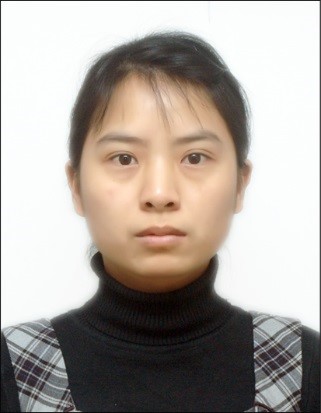 |
Name: Do Thi Thuy Linh |
Degree
| Degree | Field | Institution | Year |
| Ph.D. | Petroleum Geology | Aberdeen University, United Kingdom | April, 2016 |
| M.Sc. | Geography | Hanoi University of Science, Vietnam National University | Dec, 2008 |
| B.Sc. | Geology | Hanoi University of Science, Vietnam National University | May, 2005 |
Own Thesis
| Title | Type | Institution | Year |
| Controls on development and distribution of lateral and terminal splays in modern and ancient fluvial system: examples from the Parapeti river, Bolivia and the Miocene Ebro Basin, Spain | PhD | Aberdeen University, United Kingdom | 2012 – 2016 |
| Research and develop critiria for vulnerable assessment of wetland in Tien Yen bay for sustainable development | MSc | Hanoi University of Science, Vietnam National University | 2006-2008 |
| Research environmental-geochemical characteristics for conservation and sustainable development of earth worm in Tien Yen bay, Quang Ninh province. | BSc | Hanoi University of Science, Vietnam National University | 2001-2005 |
Experience (Academic)
| Institution | Rank, Title | Year/Period | FT/PT |
| Geology Faculty, Hanoi University of Science, Vietnam National University | Reseacher, Teaching Assistant | Jun, 2005 - Sep, 2009 | FT |
| Petroleumvietnam University | Lecturer | Oct, 2009 – now | FT |
| Aberdeen University | Ph.D. Candidates | 2012-2016 | FT |
Experience (Non-Academic)
| Company | Position | Year/Period | FT/PT |
| New Mexico University, USA | Visiting Scholar | 2/2013 – 4/2013 | FT |
| NIPI | Internship 2 weeks/year | 2018 | FT |
| Joint Venture VietsovPetro | Internship 2 weeks/year | 2019 | FT |
| PVEP SongHong | Internship 2 weeks/year | 2023 | FT |
Publications
- Do Thi Thuy Linh, 2021. Controls on the development and distribution of splays in modern and ancient fluvial systems: examples from the Parapeti River, Bolivia and the Miocene Ebro basin, Spain. Journal of Mediterranean Earth Sciences 13 (2021), 1-17, doi: 10.13133/2280-6148/17284.
- Doan Ngoc San, Do Thi Thuy Linh, Phan Dinh Nguyen, Nguyen Trung Chi, Nguyen Quoc Khanh, 2021. Application of GIS - AI for detecting geological structure and perspective zoning of mineral in VanYen area. 4th Asia Pacific Meeting on Near Surface Geoscience & Engineering.
- Nguyen Trung Chi, Pham Huy Long, Dinh Quang Sang, Do Thi Thuy Linh, Tran Thi Oanh, Nguyen Ba Duy, 2017. Geological structure of Binh Long - Ta Thiet area and tectonic evolution of Pre-Cenozoic sedimentary basins in the Southeast region of Vietnam. Petroleum Journal v.2, p. 35-42.
- Mai Trong Nhuan, Nguyen Thi Minh Ngoc, Do Thi Thuy Linh, Nguyen Thi Hong Hue, Tran Dang Quy, Pham Bao Ngoc and Quach Duc Tin, 2009. Vulnerability Assessment of Vietnamese Coastal Bays and Gulfs for Sustainable Use Planning of Environment and Natural Resources: a Case Study in the Tien Yen – Ha Coi Gulf (Quang Ninh Province). The Journal of Geology v.34 (B), p. 1-15.
- Mai Trong Nhuan, Nguyen Thi Thu Ha, Tran Dang Quy, Nguyen Thi Ngoc, Do Thi Thuy Linh, Nguyen Thi Minh Ngoc, Nguyen Thi Hong Hue, 2008. The Vietnamese Wetlands Classification System. VNU Journal of Science, Earth Sciences 24(2008) 96-103.
- Mai Trong Nhuan, Do Thi Thuy Linh et al., 2007. National Strategic Action Plan for Conservation and sustainable Development of Vietnam Coastal Wetland till 2015. Pressing House of Vietnam National University, Hanoi.
- Mai Trong Nhuan, Do Thi Thuy Linh et al., 2007. Coastal Wetlands of Vietnam. Monograph book in Vietnamese. Pressing House of Vietnam National University, Hanoi.
Recent Professional Development Activities
| Code No. | Title | Institution | Position | Year |
| GV2212 | Ứng dụng học máy dự báo vị trí có khả năng tồn tại vỉa dầu khí trong các giếng khoan - khu vực X, Bắc bể Sông Hồng | PetroVietnam University | Project Leader | 12/2022-5/2024 |
| KC4.0/19-25 | Research on Artificial Intelligence System Integrated Petroleum Geological Database for Hydrocarbon Prospects Assessment | Ministry of Science and Technology | Member | 12/2019-10/2023 |
|
01/KTQL(PVU) /2020/KHCN |
Preparation of Lectures in Petroleum Exploration and Production, Petrochemical Refining, Oil Processing and Electricity for staffs of Vietnam Oil and Gas Group (1st Stage) | Vietnam Oil and Gas Group | Member | 3/2020-2022 |
| GV1904 | Research on the Distribution of Middle Miocene Carbonate based on Seismic Atributes, X Structure, Block 04-3, Nam Con Son Basin | Petrovietnam University | Member | 7/2019- 2022 |
GV1603 |
Field trip to build area training for Structural geology and tectonic, Binh Phuoc- Dong Nai-Mui Ne- Vung Tau areas | PetroVietnam University | Member | 2016 |
| - | Research and establish of geohazards and geoenvironmental map of coastal zone in Nhuong - Cung Hau (30-100m), in scale 1/500.000 | Ministry of Environment and Resources | Member | 2007 -2009 |
| - | Environmental resources investigation and assessment of some coastal bays for the socio-economical development and environmental protection | Ministry of Environment and Resources | Member | 2006 -2008 |
| - | Investigation, assessment, statistics, and planning for conservation of wetland areas with international and national significance | Ministry of Environment and Resources | Member | 2006 -2007 |
| - | Investigation and assessment the status and proposal for planning and action plan in use and protection of coastal wetland, coastal and marine environment. | Ministry of Environment and Resources | Member | 2006 -2007 |
Software Skills
| Type | Description |
| Simulator | Petrel, IP |
 |
Name: NGUYEN THI HAI HA |
Education
| Degree | Field | Institution | Year |
| Msc | Geophysics | Hanoi University of Mining and Geology, Viet Nam | 2014 |
| B.Sc. | Geophysics | Hanoi University of Mining and Geology, Viet Nam | 2012 |
Experience (Academic)
| Institution | Rank, Title | Year/Period | FT/PT |
| Institute of marine Geology and Geophysics, Vietnam | Researcher, Teaching Assistant | Jun, 2005 - Sep, 2009 | FT |
| PetroVietnam University, Ba Ria - Vung Tau, Vietnam | Lecturer | Oct, 2015 – May, 2022 | FT |
| Joint venture VietsovPetro | Engineer | June, 2022-noư | FT |
Experience (Academic)
- Internship in petroleum industry 2 weeks/year.
- Visiting JX Nippon Oil & Gas exploration Corporation in Japan for 2 weeks in 2017.
- Parcitipating in design projects.
Courses
| Institution | Course name | Type | Level/ Certificate | Year |
| VPI | Advance of seismic interpretation | Short course | Certificate | 2018 |
| PVU | Structural geology in petroleum exploration | Short course | Certificate | 2019 |
Publications
- Doan Ngoc San, Nguyen Thi Hai Ha, 2018. Application of Vertical electrical sounding (VES) and Electromagnetic (EM) methods to study shallow geological structure for inspection of gas pipeline foundation. PetroVietnam Journal
At PVU, we are dedicated to providing a comprehensive platform for student career development through various initiatives and partnerships. Our commitment revolves around assisting students in securing internships and employment opportunities. We offer a range of programs designed to equip students with practical skills and real-world knowledge to thrive in their chosen careers.
Our Career Support Initiatives include:
- Internship Opportunities: We facilitate internships by introducing students to available programs, delivering soft skills training, and organizing engagement sessions with industry professionals.
- Advisor Assistance: Advisors are available to help students refine their resumes and cover letters upon request.
- Company Day: Annually, we organize Company Day, featuring mock interviews and networking opportunities with industry representatives. This event serves as a platform for students to interact with potential employers, gain insights into job requirements, and receive feedback on their CVs. Many students have secured employment directly through this event, even before graduating.
- Training Sessions: We conduct 6-7 workshops annually to enhance students' soft skills and provide practical insights from industry experts, aligning them with job market demands.
- Our commitment to student success is evident in our statistics, showcasing that approximately 60-70% of our students find employment immediately after graduation, with a 100% employment rate within six months post-graduation.
- We maintain stable relations with various employers, both domestic and international, with around 70 different companies currently employing PVU graduates. Additionally, through collaborations within and outside of PVN, 100% of PVU students participate in summer internships or final-term internships lasting between 4 to 6 weeks at various companies.
Our efforts extend beyond graduation, with a dedicated Facebook group (https://www.facebook.com/groups/Alumni.PVU, https://www.facebook.com/groups/Student.PVU) connecting current and former students. This platform shares valuable job-related information and serves as a networking hub for alumni and potential employers. We actively track and analyze the career paths of our alumni through email, phone, and company records, ensuring continuous improvement in our curriculum based on alumni feedback.

